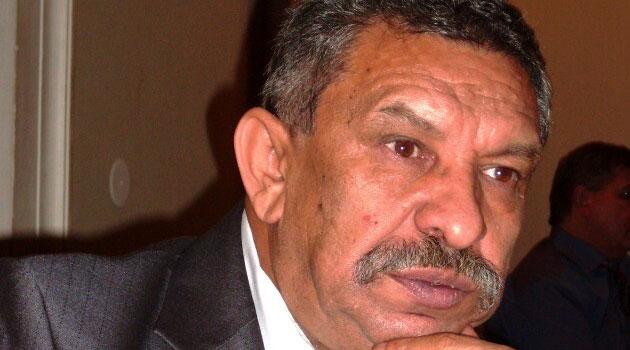Romani activist Štefan Tišer has passed away in the Czech Republic

On Saturday, 12 June 2021 at about 15:00 the Romani activist Štefan Tišer passed away. His partner, Dana Giňová, confirmed to news server Romea.cz that heart failure was the cause of death.
Mr Tišer was born in 1950 in Stráž u Tachova, Czechoslovakia, and spent his childhood in Slovakia with his grandparents in the Romani settlement in the municipality of Betlanovec. He graduated from the high school in the town of Liptovský Hrádok, near his grandparents’ home, with a focus in economics.
After completing his military service he remained in Plzeň (West Bohemia) where he worked in factories run by the Škoda enterprise: At his own request he was transferred from a job in the accounting office to working on the factory floor and made his living that way. At the beginning of the 1980s he worked as a miner in the Karviná area (Moravia), and after returning to the Plzeň area he managed what was called in those days an “enterprise of associated production”, focused on construction and excavation work.
Mr Tišer continued to do business in the construction field after the events of 1989. Since the 1970s he had been involved in the political and social life of the Romani community in Plzeň.
He contributed to the organization of concerts or Romani football tournaments during which Romani people striving for the social emancipation of the Romani minority in Czechoslovakia would meet to negotiate. After 1989 he became involved in activities supporting Civic Forum and in the Romani political movement.
Mr Tišer was a member of the Roma Civic Initiative (ROI) and in 1991 co-founded the Movement of Engagé Roma, participating in the activity of the Roma National Congress. In 2011 he established the Equal Opportunities Party in the Czech Republic, which ran candidates together with the Green Party for the elections to the Czech Chamber of Deputies and the European Parliament in 2014.
After none of the party’s candidates were elected in either election, Mr Tišer resigned his leadership role and membership in the party. He then continued to live in Plzeň and was a member of commissions and working groups addressing issues related to the situation of Romani people in the Czech Republic at the level of the Czech Government and the Regional Authority.
